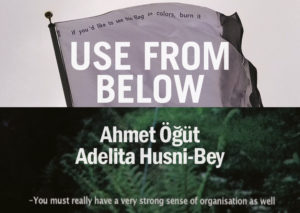Adnan presented boattr.eu – Awareness raising regarding the Central Mediterranean Migration crisis during the AIS conference.
In 2019, the theme of the Association of Interdisciplinary Studies (AIS) annual conference will be Interdisciplinarity in Global Contexts. Since a defining feature of interdisciplinarity and transdisciplinarity is not to abstract or isolate problems but rather to approach them in their real-world contexts, this conference theme asks participants to consider the global and local contexts of interdisciplinary education and research. Obviously, contexts differ in scale and can be defined at microscopic or macroscopic levels: chemical properties are influenced by molecular configurations, for example, organic functions by bodily states, individuals by their societal environments, public health by geographical and climatic conditions, and cities by their world-wide connections. Adding to this complexity are various dynamic interactions across these dimensions, further making an interdisciplinary perspective necessary.
This paper presents the envisaged interdisciplinary boattr.eu research project. boattr.eu is planned as a European research project currently initiated by the Migration Research Cluster of the University of Malta. ‘boattr.eu’ (b.eu) stands for boat migrants, forced migrants, and the aims of the boattr.eu project is to stimulate discussion and offer counter-narratives surrounding the current forced migration situation in Europe, through the use of novel immersive experience (IX) technologies which provide a complete sensory experience for participants. To achieve this aim, four case studies on particular events that have triggered different reactions to the migration crisis in the dominant public discourse of four European countries, namely Malta (Solidarity), Italy (Containment), Greece (Criminalisation), and Spain (Militarisation), are planned to be used as a basis for developing the relevant sensory experiences.
As long as there is no option of safe passage to Europe, people will continue risking their lives, forced to take what is now the host of some of the the world’s most dangerous migration routes, the Mediterranean Sea. [Fargues Philippe, “Four Decades of Cross-Mediterranean Undocumented Migration to Europe” (International Organization for Migration, 2017)] Setting off in flimsy rubber boats, many soon find themselves heading for rocks or sand banks that can readily capsize or sink a dinghy. Others are abandoned by smugglers who drop them at beaches that are inaccessible via land. The majority of people are wearing fake life jackets, giving them a false sense of safety. [Hannah Al-Othman, “Tricked into death: 150,000 migrants’ life jackets – many of which are useless fakes- lie piled on the coast of Lesbos in a grim memorial to those who die crossing the Mediterranean” (The Daily Mail, 2017)]
The boattr.eu research project envisages using the expertise from the Immersive Lab project in order to allow researchers to create immersive experiences around the central Mediterranean migration crisis. Sound and image constantly surround us, their presence is ubiquitous therefore we are all part of an immersion, whether or not we are aware of it. Immersive experiences introduce audiences to digital journeys where they are transported through the content of, for example, a science project, an architecture simulation, a documentary, an art installation or a performance.
Goldsmiths College also hosts the Forensic Architecture agency and the Forensic Oceanography project, which recently published a report on the central Mediterranean migration crisis entitled Mare Clausum [Mare Clausum, a report by Forensic Oceanography (Charles Heller and Lorenzo Pezzani), affiliated to the Forensic Architecture agency, Goldsmiths, University of London, 2018] which offers the boattr.eu research project a conceptual awareness raising method for the unfolding migration crisis at the borders to Malta.
The mission of the University of Malta Cluster for Migration is to offer a dialogical space in which researchers from different academic disciplines can work towards understanding all the evolving aspects of international migration, including that of belonging across generations. The long-term goal is to thereby contribute to an equitable, more sustainable and more inclusive society that brings benefits to migrants and their families, communities of origin, destination and transit, as well as their sending and receiving countries. Today the migration crisis renders the Mediterranean an opaque space, removed from the public eye, where the key founding values of the European Union are put under strain, making the Migration Cluster initiative all the more necessary. The cluster can help to shed light and raise awareness among stakeholders, policy makers, and the general public about the unfolding crisis at the common maritime borders of the Member States.

